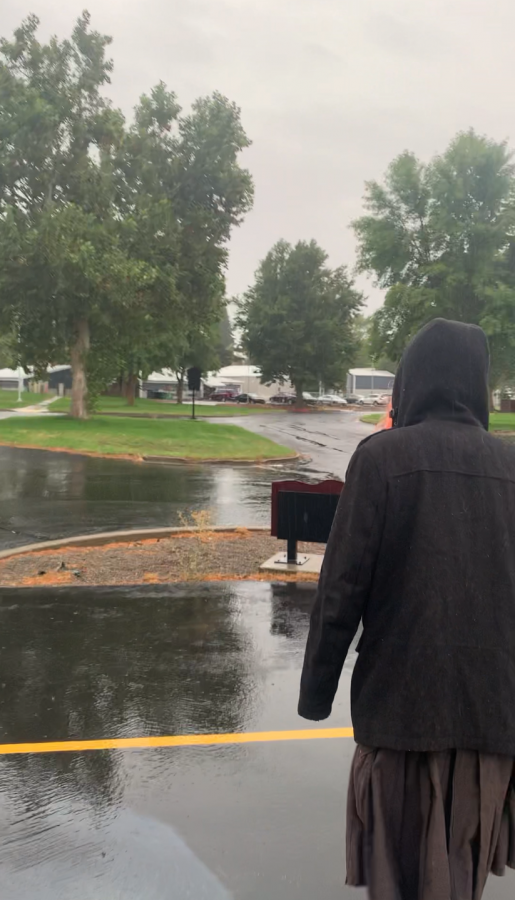Ellensburg sees rainfall after weeks of smoke
A student out enjoying the unexpected rainfall.
October 7, 2020
On Sept. 23, Ellensburg had rainfall for the first time since classes started, bringing relief from the recently smoky air. This marks the beginning of the wet season for Ellensburg, as Ellensburg is in a drier region of Washington.
“During the summer it’s really our dry season,” Geology Professor Susan Kaspari said. “Usually we start getting precipitation right about now, then precipitates through until the spring.”
According to Weather Underground, the amount of rainfall for September this year totaled 0.48 inches. In September of 2019, the total amount of rainfall for the month was 0.63 in.
Ellensburg doesn’t get rain often as it is in a large rain shadow. A rain shadow is when the clouds from large bodies of water do not quite reach a region, Kaspari said.
“The majority of moisture that falls out is precipitation over the crest of the Cascades,” Kaspari said. “By the time the air masses start to come down on the east side of the Cascades, the majority of that moisture’s already fallen out.”
According to Kaspari, Snoqualmie Pass can have around 100 inches of rain a year. However, here in Ellensburg, we only get around nine inches a year.
The recent rainfall hinted towards the upcoming wet season. Oct. 1 marked the beginning of this phase of Ellensburg’s weather cycles, and it raises the question of what form precipitation will be during the cold months this year: either rain or snow.
“We rely tremendously on the precipitation for uses during the summer months when it is really dry,” Kaspari said. “Right now, we store a lot of water that accumulates from precipitation in the winter months for use in the summer months for agriculture and other uses. The way we do that is through reservoirs.”
Kaspari said when precipitation falls as rain during the winter months, it goes into the rivers which lead out to the ocean, and it is unable to be collected in reservoirs. This causes an impact on the Ellensburg area, and lowers the amount of water saved for activities such as agriculture during the upcoming seasons.
“More and more of that wintertime precipitation is falling as rain as opposed to snow. When that precipitation falls as snow, it gets stored in the snow pack, then it releases slowly in the spring into the summer months. And that is advantageous for us for a lot of ecological reasons also,” Kaspari said.
Kaspari said with the climate getting warmer, causing precipitation to be presented as rain versus snow during winter months, it creates an impact on our retention efforts and Ellensburg may see less snow this winter.


